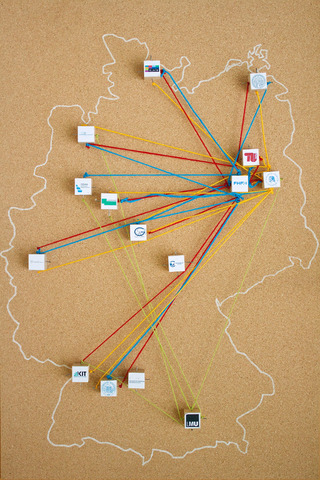ForschenLernen
Subproject “Competence Development II: Scientific Reasoning and Argumentation”

Type of project and funding:
funded by the BMBF
Duration:
01.10.2014 bis 31.03.2018
Project team leaders:
Prof. Dr. Martin Fischer & Prof. Dr. Frank Fischer
Project team members:
- Dr. Jan Zottmann
- Dr. Markus Bolzer
- Dipl.-Ing. Matthias Holzer
Descpription:
The BMBF-funded joint research project ForschenLernen investigates the effects of inquiry-based learning and aims to examine activities that have been implemented within the “quality for teaching” funding program. This subproject, located in Munich, focuses on the effects of inquiry-based learning on students’ development of Scientific Reasoning and Argumentation (SRA) skills as a crucial part of scientific or research competence. The overarching research questions of the project are:
• Which practice- and research-oriented activities foster students’ skills related to Scientific Reasoning and Argumentation?
• To what extent are the effects of these activities domain-specific or domain-general across various domains?
• What are the effects of activities related to the didactic qualification of the teaching staff on students’ skills in Scientific Reasoning and Argumentation?
Quasi-experimental and experimental designs will be applied to examine and compare effects of different types of inquiry-based learning on students’ development of skills related to Scientific Reasoning and Argumentation. First, we will examine to what extent students with different levels of prior knowledge (at the beginning of their studies vs. shortly before the final exams) and from diverse domains (Medicine, Social Sciences, Life Sciences) differ with respect to their skills related to Scientific Reasoning and Argumentation. An instrument for the measurement of these skills will be developed on the basis of prior work from the BMBF-funded project KOMPARE. In close collaboration with the subproject “Formate”, different types of inquiry-based learning will then be identified and categorized. A selection of the identified types of inquiry-based learning will be examined in more detail. In addition, an interview study will be conducted to investigate possible effects of the didactic qualification of the teaching staff on students’ skills in Scientific Reasoning and Argumentation. Finally, an intervention study will be conducted to investigate the benefits of an inquiry-based seminar specifically developed with the aim of fostering these skills. This intervention study will include students from the aforementioned three domains.

